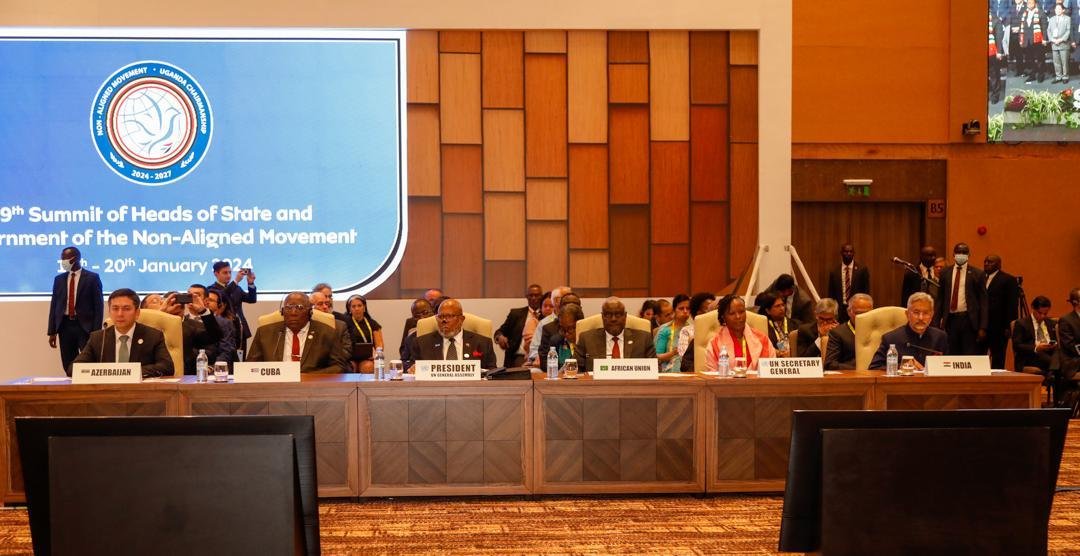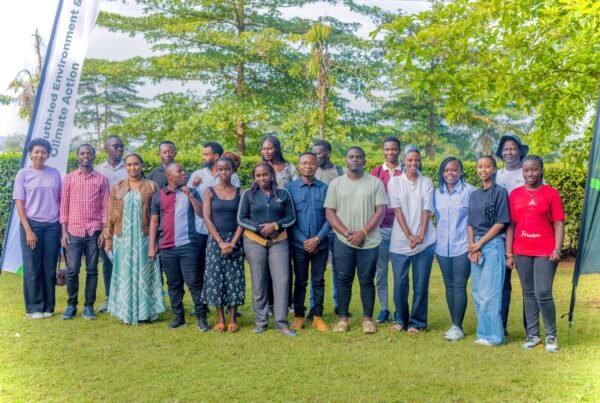Leaders from 120 countries across the world converged in Kampala, Uganda on 15th January 2024 for the 19th summit of the Non-Aligned Movement (NAM) that went on up to 20th January.
NAM is the second largest international forum after the United Nations, founded in 1961 at the height of the cold war between the west and east with an agenda of not formally aligning with or against any major power bloc. It was formed with a dedication to represent the interests and aspirations of developing countries. Uganda was admitted to the membership of NAM at the 2nd Summit of Heads of State and Government, held in 1964 in Cairo, Egypt. With its membership consisting of 120 countries, 53 from Africa, 39 from Asia, 26 from Latin America and the Caribbean, and two from Europe, the NAM forum has over the years gained traction after intending to solve challenges that include, but not limited to armed conflicts, food insecurity, health pandemics, climate change, and unemployment among the myriad of challenges. The 19th summit is running under the theme, “deepening cooperation for shared global affluence.’’
Uganda’s hosting of the 19th NAM summit has ignited great expectations, especially on the positive side since this union of global leaders tends not only to showcase Uganda’s diplomatic competence, but also underscores the urgent need for a collective effort in addressing the pressing issue of climate change that affects vulnerable communities by threatening the basic rights to life, food, water and health.
Uganda, the host of this marginal summit, is at it’s final stages in implementing a deadly climate project-the East African Crude Oil Pipeline (EACOP). This project, a disaster to the environment, is projected to emit over 34 million tons of carbon dioxide annually, 30 times the annual emissions of Uganda, and Tanzania combined. Additionally, it requires heating to transport the oil, which further contributes to global heating. With NAM holding the hope of being a turning point in the global conversations of climate change on both environment sustainability and human rights, it is strange that the delegates have turned a blind eye to this deadly project! Shouldn’t it be the top point of climate discussion everywhere? Little or no mention has been made regarding the EACOP yet it is one of the most pressing climate matter at the same time being implemented by the host nation.
Ignoring such a crucial project at such a global stage underpins the delegates’ secret support for the project’s implementation. The NAM Summit should have been a platform to completely halt the entire EACOP project and hold Uganda accountable by fulfilling the NAM environmental objectives. Discussing and deliberating on how to go green for an equitable future, how to stop the land evictions within the east African region that have left over 12000 people displaced, how to stop global heating that will arise from transporting the oil without mentioning the dangers EACOP has caused (evictions) and is continuing to cause to people and climate leaves many question about the relevance of the summit unanswered.
The NAM summit presents an opportunity for member nations to commit to a collective nation that only reduces the impact of climate change, but also upholds and safe guards the fundamental rights of all citizens. The same summit has the full capacity to set concrete action plans to promote environmental sustainability and human rights protection of all citizens.
With its potential, the NAM Summit should have put emphasis on having a landing impact, starting with the host nation (Uganda) while encouraging member states to follow suit.
Whereas the same energy was put on different issues affecting the globe, climate was given little and passive attention. A total climate betrayal!



